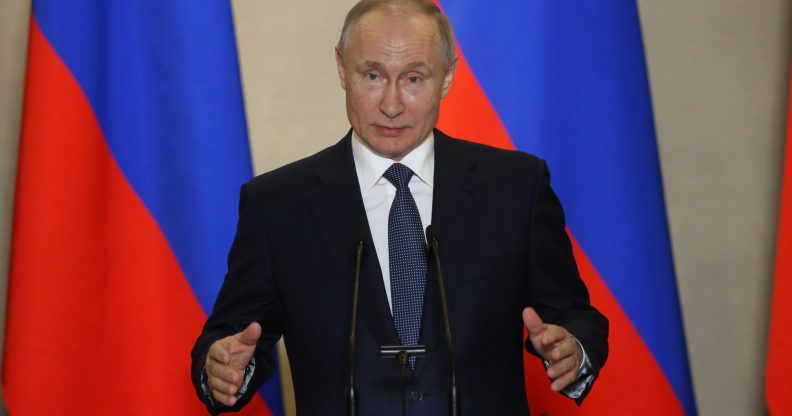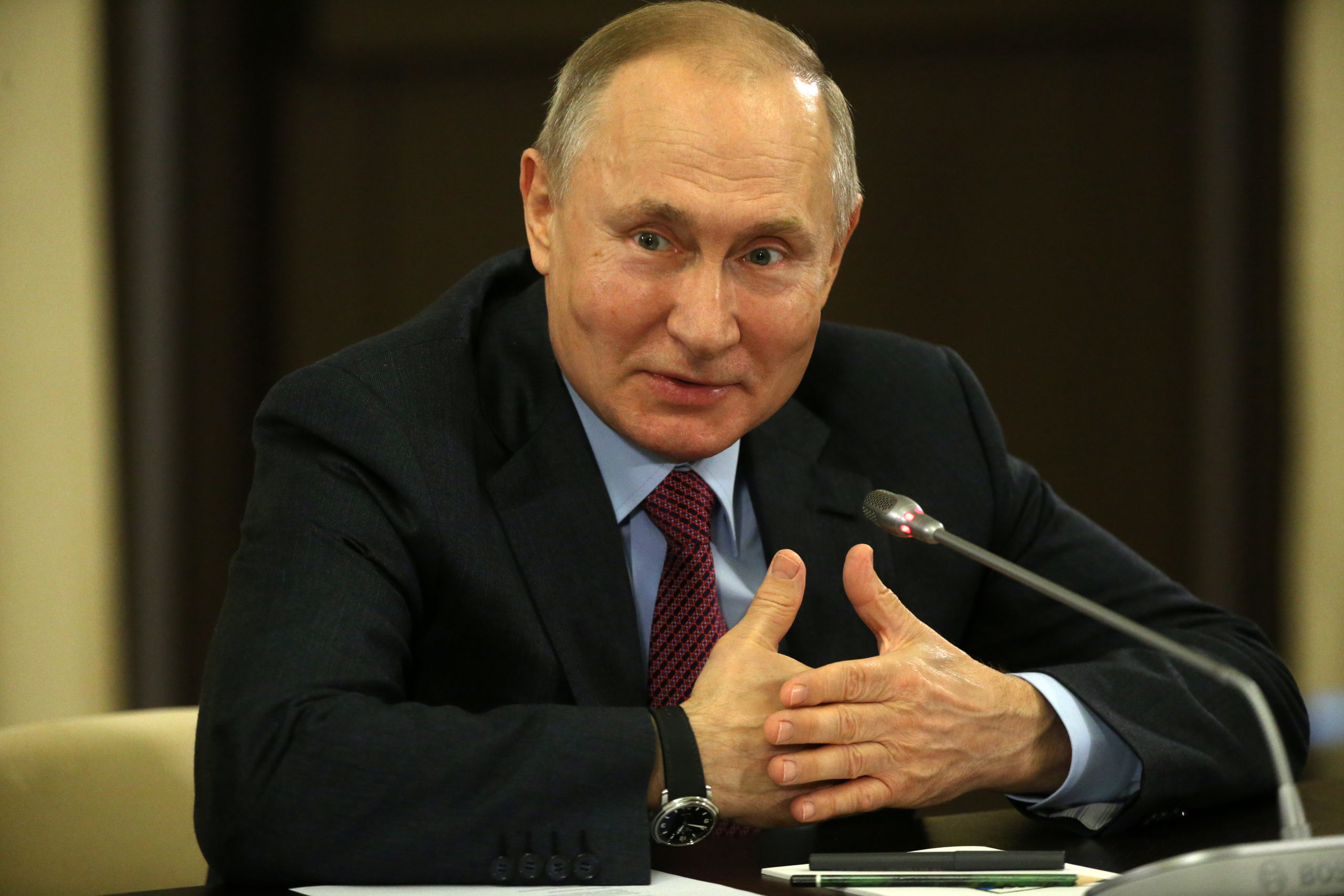Vladimir Putin’s homophobic reign to continue until 2036 as same-sex marriage ban ‘used as distraction’ in power-grab vote

Russian President Vladimir Putin on March 18, 2020 in Sevastopol, Crimea, Ukraine. (Mikhail Svetlov/Getty Images)
Nearly three-quarters of voters in Russia have opted to back an amended constitution that reinforces a ban on same-sex marriage and enables president Vladimir Putin to stay in power until he is 83.
According to preliminary results from a week-long referendum released by Russia’s Central Election Commission on Wednesday (July 1), 73 per cent of Russians have backed the proposed package of constitutional changes — including an amendment that lists “defence of the institution of marriage as the union of a man and a woman” as a Russian value.
The move is largely symbolic, given gay weddings and same-sex adoptions were already banned in Russia and are extremely unlikely to be legalised — but writing the measure into the constitution further entrenches the country’s anti-LGBT+ beliefs into law, and makes it harder for any future reforms to happen.
Critics had warned that Putin’s real motive in calling the referendum was to push through a provision resetting the clock on presidential term limits — allowing him to stay in power until 2036, rather than leave office when his current term ends in 2024.
The leader, long dogged by allegations of corruption, has also been granted immunity from prosecution whenever he leaves office.
Ahead of the vote, the Russian LGBT Network made clear: “[We are] convinced that the main purpose of adopting series of amendments to the constitution is to keep in power the current government and Russian president. We consider other constitutional changes artificial to gain people’s attention.”

Russian President Vladimir Putin (Photo by Mikhail Svetlov/Getty Images)
The result comes amid allegations of tampering, ballot-stuffing and irregularities in the week-long vote.
The package of reforms could only be approved or rejected as a whole, and ahead of the vote allies of Putin were accused of exploiting public homophobia in order to manipulate the vote with an anti-gay election ad. State media outlets also touted the anti-LGBT+ provisions ahead of the vote, after Canada’s ambassador warned about an “increasingly less inclusive national legal framework” in a Pride Month message.
However, the group added that “it is better to vote than to boycott” the poll, saying: “The meaning of voting is not that your opinion wins, but also the ability to express this opinion, because it has value.”
LGBT+ people have faced persecution under Vladimir Putin.
Putin has long enabled efforts to oppress LGBT+ people in Russia.
With the support of the country’s anti-LGBT+ Orthodox Church, the leader imposed a law outlawing “propaganda of non-traditional sexual relationships” among minors in 2013.
Human rights monitors say the law has been used to clamp down on the freedom of expression of LGBT+ people, and fuelled a rise in homophobic rhetoric in the country.
In 2017, the European Court of Human Rights found that the law is discriminatory. The judges wrote: “By adopting such laws, the authorities reinforced stigma and prejudice and encouraged homophobia, which was incompatible with the values of a democratic society.”
The same court also found Russia to be violating the human rights of LGBT+ people over a ban on Pride events in 2018, and over actions to block the registration of LGBT+ groups in 2019.

